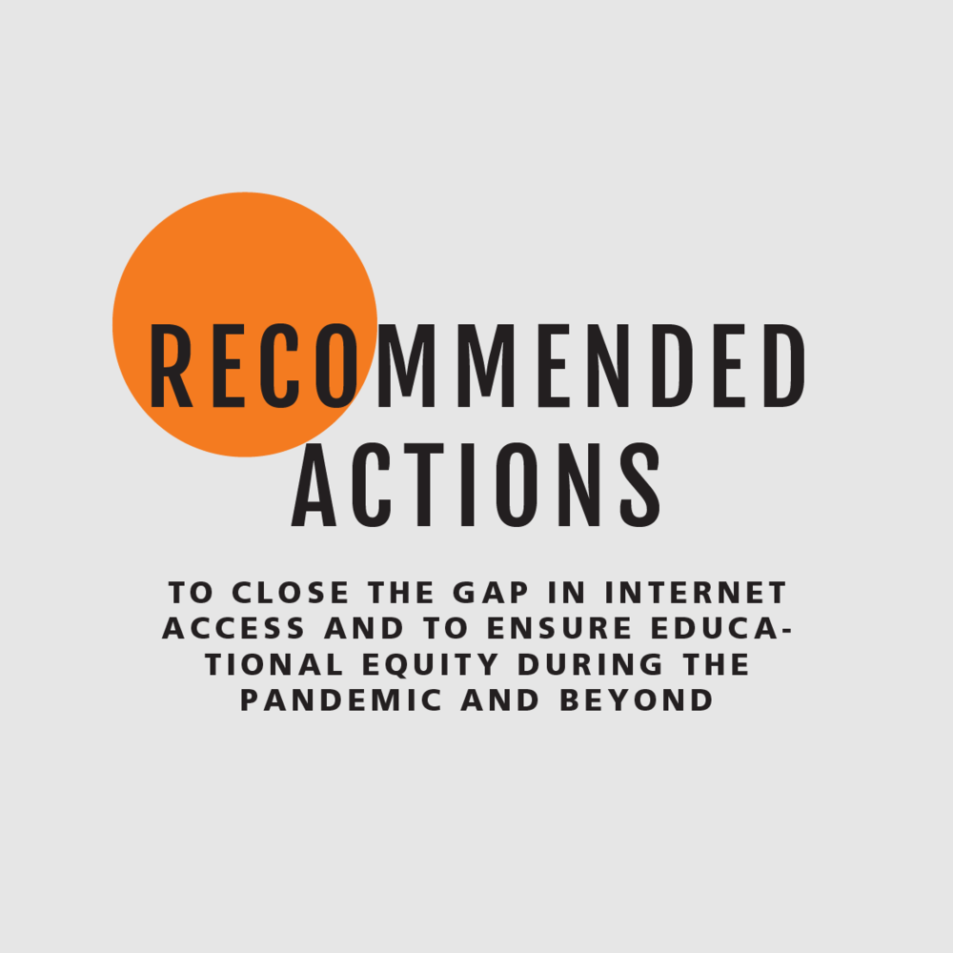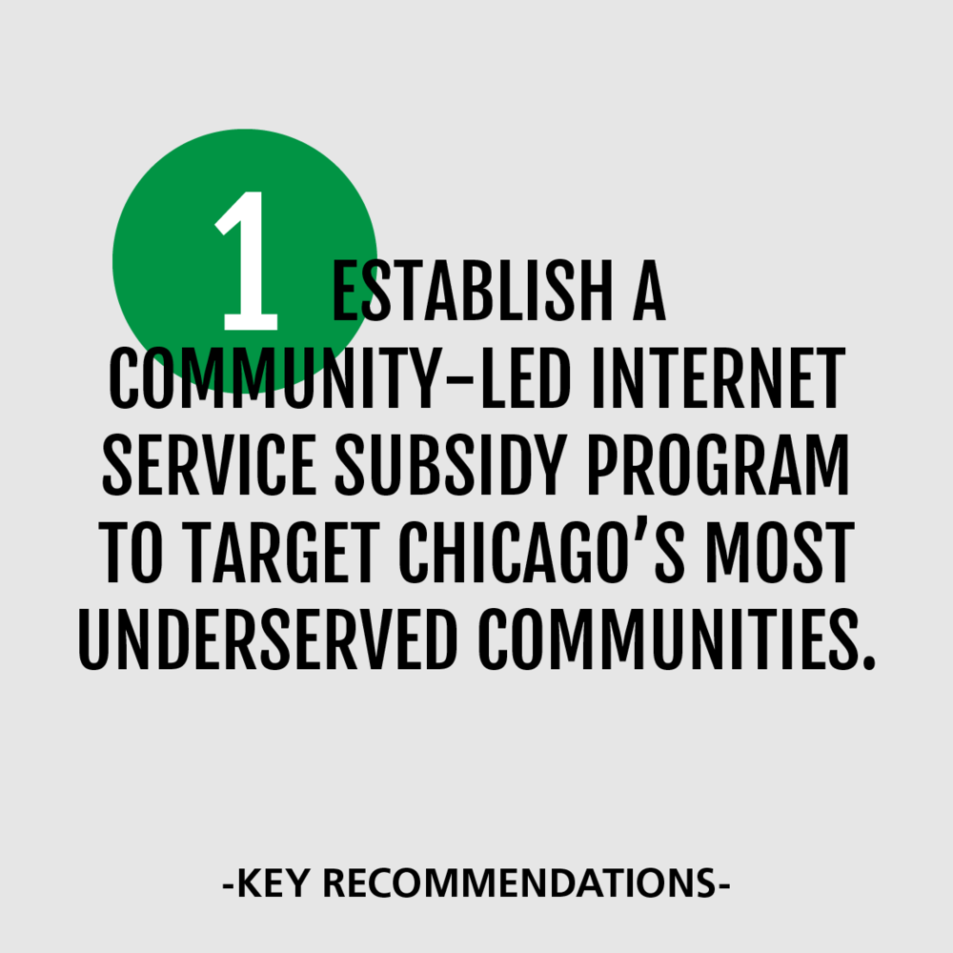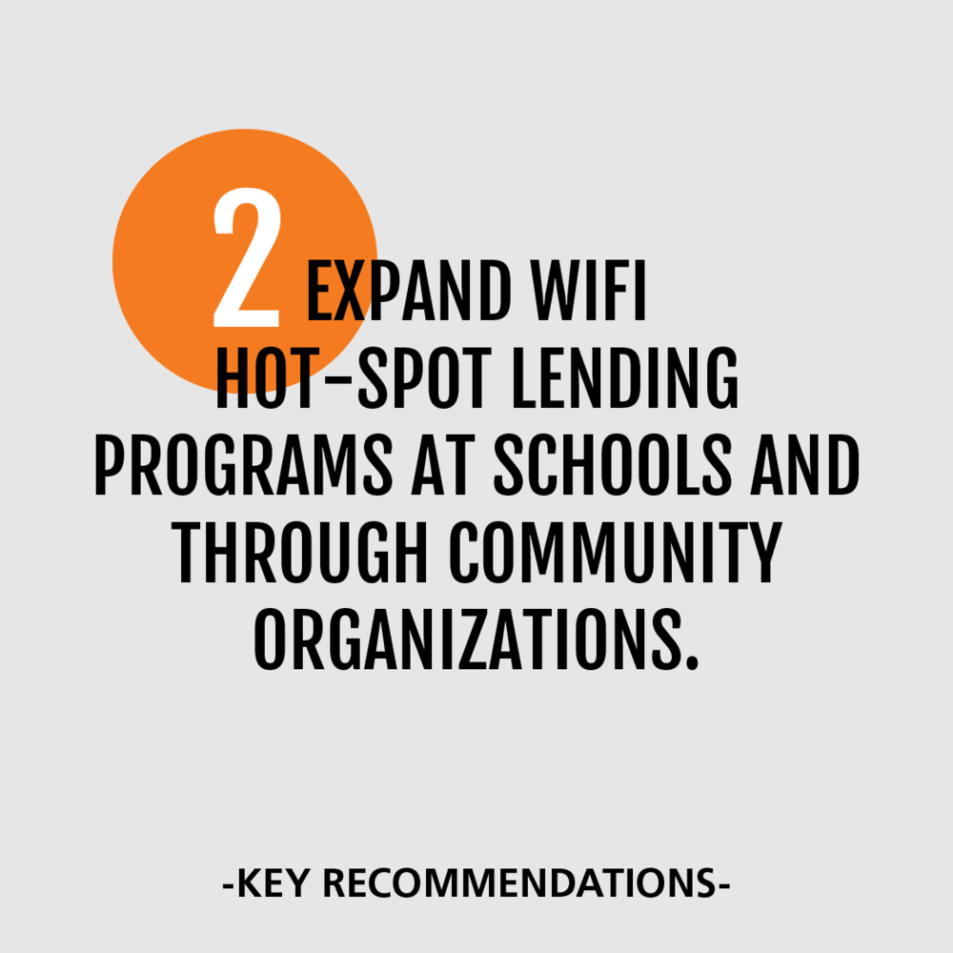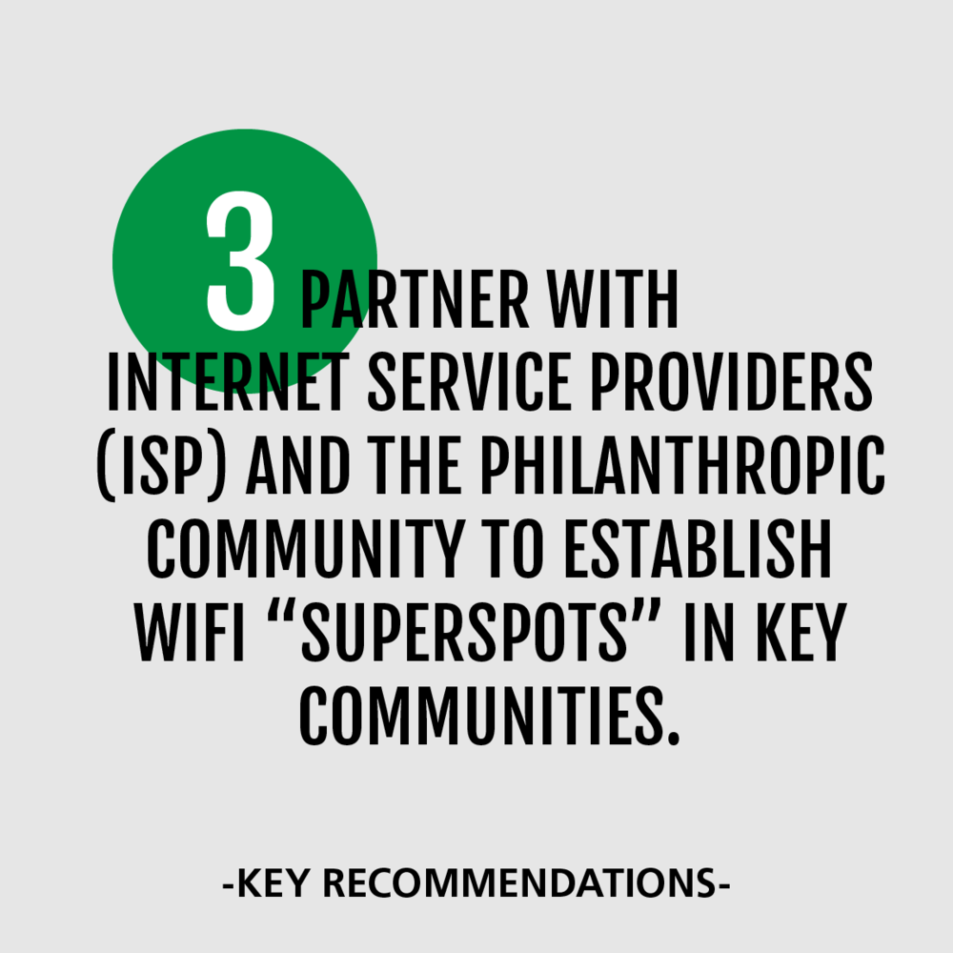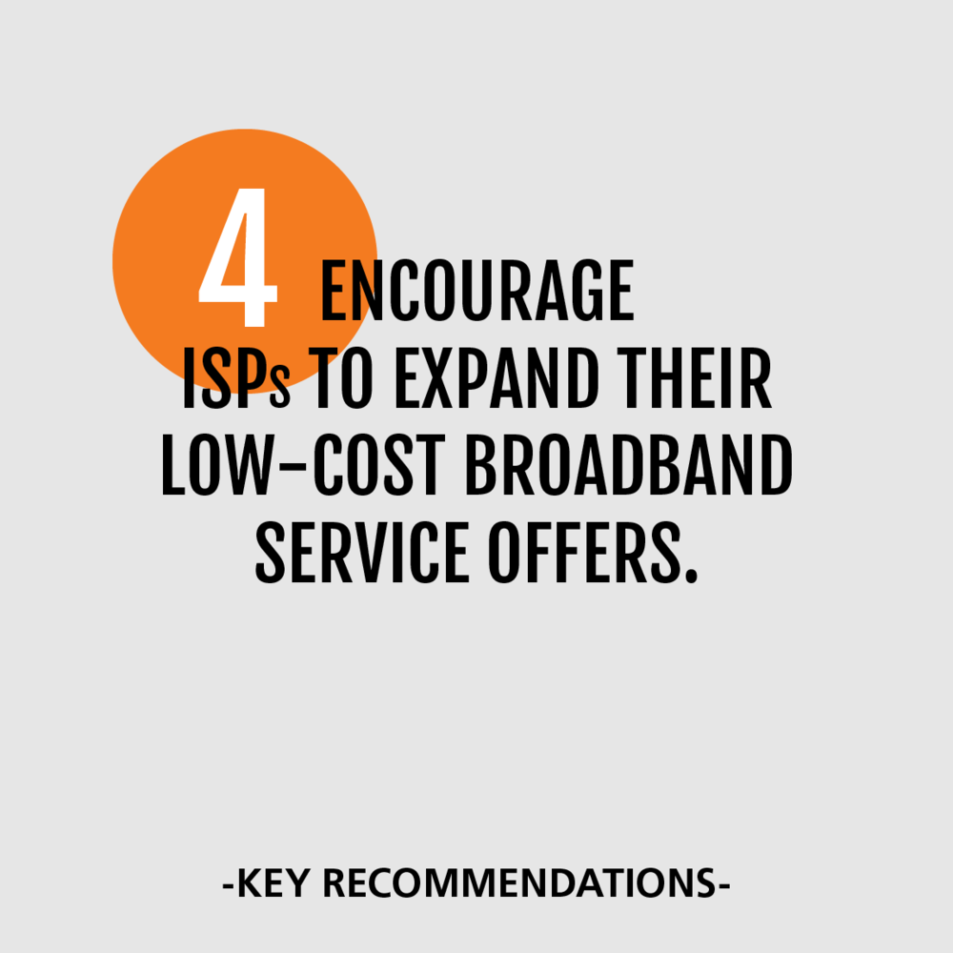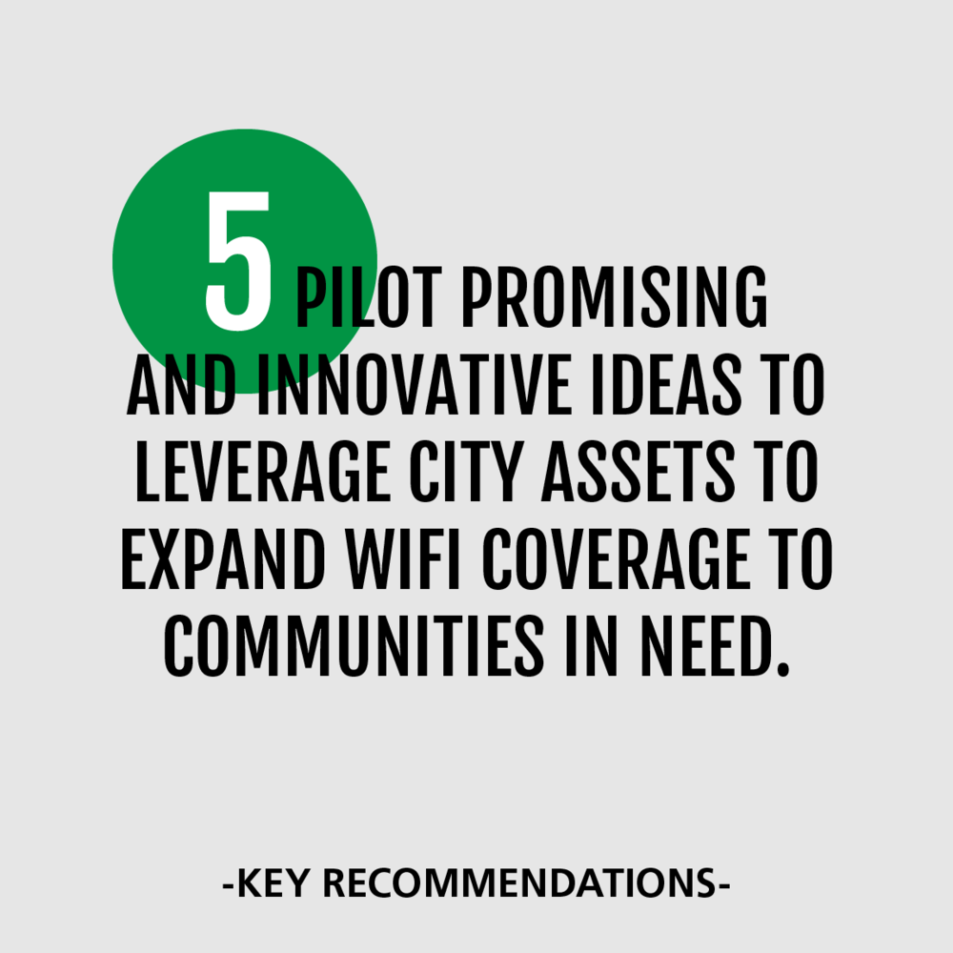Our Process

My daughter has autism, and when her daycare shut down due to COVID-19, I had to make many adjustments to help her learn from home, but I do not have an internet connection. It is very important for everyone to have the internet today. It is essential for such modern needs as email, staying up-to-date on the news, and the ability to take classes from home while schools are closed.
—Nelly V., Brighton Park Parent
We Asked Parents what they Need
Like many, as our world began to rapidly shift as a result of COVID-19, our team hunkered down to do what we do best — ask parents what they need.
Since the beginning of this nationwide crisis, our team has made hundreds of phone calls to Chicago Public Schools parents to understand what they need and how we can best support them during this prolonged uncertain time.
From those calls, we learned that barriers to a quality education that already existed before COVID-19—like access to high-speed internet—have been compounded.
A large source of inequity within Chicago is technology access—devices and high-speed internet—to support continued learning. In households without access to digital resources, students likely already struggled to get homework done, collaborate with teachers and classmates, and ask questions on school projects — even before the pandemic.
For example, one parent talked about her four kids having to use technology at home for e-learning and the challenges of only having one computer to share among them.
“Teachers are also giving my kids the same time to get on Zoom, which does not help because of the lack of technology [devices]. I am a teacher, but I don’t know how to teach everything and my kids are in dual language classes, so I’m even less knowledgeable about that. It just creates a lot of tension because I do not want my kids to fall behind. I’m doing the best I can right now.”
Students with special learning accommodations and needs are especially vulnerable right now. Parents say they are simply not receiving the support that they’ve fought so hard to secure in recent years.
Finally, parents need guidance about remote learning, how to gain access to quality at-home learning programs and educator support, and how best to structure learning for a broad range of learners and levels—all of which requires high-speed internet as a basic starting point.
A COMMON THEME EMERGED: ACCESS TO THE INTERNET IS CRITICAL TO STUDENT SUCCESS AND IS AN ISSUE OF EDUCATIONAL EQUITY.
We Researched
How Big is the Digital Divide?
State and local officials require the use of online instruction to effectively implement remote learning plans, but the “digital divide”—that is, the barrier that students face at school when they don’t have access to a broadband internet connection at home—disproportionately plagues Chicago’s low-income families and people of color.
As we heard repeatedly from families that access to high-speed internet was critical for student and family success, we wanted to better understand the depth of the issue that parents had brought to the forefront. Just how many students and families didn’t have internet? Where in Chicago did they live?
We partnered with the Metropolitan Planning Council to release Digital Equity in Education in the Coronavirus Era, a comprehensive report that demonstrates the critical need for internet access in Chicago’s South and West Sides.
WE LEARNED THAT 1 IN 5 CHILDREN UNDER THE AGE OF EIGHTEEN LACK ACCESS TO BROADBAND CITYWIDE, EQUATING TO MORE THAN 110,000 KIDS.
Predominantly black and Latinx/a/o neighborhoods show startling gaps in internet connectivity, including:
- Just over 1 in 3 households in Austin, including 33%, or nearly 8,000 of all residing children
- Nearly 1 in 3 households in Humboldt Park, including 33%, or 5,100 of all residing children
- Nearly 1 in 2 households in West Englewood, including 46%, or 3,100 of all residing children
Increased internet access for these communities, some of which have seen disproportionately high rates of COVID-19 cases, would also provide access to healthcare options and other ancillary benefits, in addition to closing the digital divide—which contributes to a significant racial equity gap in Chicago’s education landscape.
We Partnered
Chicago Connected
How Kids First Chicago Was a Critical Support to the City of Chicago’s First Comprehensive Internet-Access Program, Providing Free Internet to Families Who Need It the Most.
Our report, Digital Equity in Education in the Coronavirus Era, , not only helped to define the scope of the digital divide in Chicago, but it also proposed 5 key recommendations.
01 | Establish a Community-Led Internet Service Subsidy Program to target Chicago’s most under-served communities.
02 | Expand WiFi hot-spot lending programs at schools and through community organizations.
03 | Partner with Internet Service Providers (ISP) and the philanthropic community to establish WiFi “SuperSpots” in key communities.
04| Encourage ISPs to expand their low-cost broadband service offers.
05 | Pilot promising and innovative ideas to leverage city assets to expand WiFi coverage to communities in need.
From there we worked directly with the City of Chicago, Chicago Public Schools, and philanthropic partners to find implementable solutions to the digital divide.
On Thursday, June 25, 2020, Mayor Lightfoot announced Chicago Connected, a public-private partnership aiming to close Chicago’s digital divide and ensure every eligible student has access to high speed internet.
In launching Chicago Connected, the City of Chicago, Chicago Public Schools, and the city's philanthropic community have made a historic commitment to eliminating internet access as a barrier to digital learning.
Chicago Connected is the most comprehensive effort undertaken by any city to connect its students to the internet and serves as a model for other cities to follow in permanently closing the digital divide.

The response from the City and philanthropic community—initiated by Ken Griffin, CEO of Citadel, and further championed by Crown Family Philanthropies, ITW, and other generous donors—transformed a pilot concept into a comprehensive, citywide program that will sustainably connect the most vulnerable CPS students for the next four years.
—Daniel Anello, CEO Kids First Chicago
We Implemented
We Provided Critical Support
As our partners worked hard to implement this ambitious program, we continued to provide critical support.
01 | COORDINATION
A program as large as this one required many partners—from funders, to Chicago Public School Staff, to Internet Service Providers, to Community-Based Organizations. Kids First helped to coordinate communications and resources.
02 | MATERIALS
Kids First provided both partner-facing and parent-facing materials to support the launch of Chicago Connected. Following the launch of Chicago Connected, we will continue to support parents and the district with digital literacy materials.
03 | PARENT VOICE
Kids First believes that parents and community members should always be involved in citywide programming —especially when it comes to their children’s education. At every stage, we provided opportunities for decision-makers to better understand what parents needed and elevated the voices of parent partners.
04 | RESEARCH & DATA
In our parent interviews, in our research report, and throughout the implementation process, we have provided data analysis to ensure that every decision serves parent and student needs.
We will continue to provide data analysis and research as the program unfolds to ensure that implementation is equitable and effective.
Press Mentions
CRAIN’S CHICAGO BUSINESS | CHICAGO SUN-TIMES | CHICAGO TRIBUNE | WTTW | WGN
Find more on our Media Page.
Program Details
Chicago Connected
About
Chicago Connected is a partnership program between the City of Chicago, Chicago Public Schools (CPS), the philanthropic community, and community organizations.
It is a 4-year, $50 million program that will provide free internet access to an estimated 100,000 students. Fully funded for the first two years by a combination of public and philanthropic sources, the program will be funded by the City and CPS in Years 3 and 4.
KEY ROLES:
- CPS has reached out to all eligible families. Families can sign up directly with Internet Service Providers (ISP) using a unique code provided by CPS.
- Selected Community-Based Organizations (CBOs) supplement CPS outreach with a particular focus on the hardest-to-reach households. Additionally, CBOs provide newly-connected families with digital literacy training and skills development curriculum using materials provided to them by the ISPs.
- Participating Internet Service Providers (ISPs) will offer the highest-speed broadband at the lowest possible cost.
- The City of Chicago and its philanthropic partners created a funding pool to (1) pay for in-home broadband for eligible households and (2) compensate community-based organizations for their training and support of newly-connected households.
- The United Way of Metro Chicago acts as a fiscal agent to provide payment to ISPs on a monthly basis for all households connected through the initiative.
Who Qualifies?
HOW ARE FAMILIES SELECTED FOR THIS PROGRAM?
CPS has contacted eligible households through direct mail, robocalls, and text messages. Eligibility is open to all CPS families who qualify for free or reduced-price lunch.
WHAT ABOUT FAMILIES THAT ARE ALREADY SIGNED UP FOR THE INTERNET?
Families who qualify for this program have the option to access free internet, and those with existing internet can transition to this program if they choose.
DOES CHICAGO CONNECTED PROVIDE INTERNET TO HOUSEHOLDS WITH CHILDREN WHO DO NOT ATTEND A CPS SCHOOL?
Currently, the Chicago Connected program focuses on households with CPS students. It is the ambition of the program to eventually expand to all disconnected households.
Community-Based Organizations
CBOs are responsible for conducting outreach activities to help eligible households sign up and providing newly-connected households with digital literacy training and resources.
Chicago Connected provides funding to CBOs as they:
- Eliminate internet accessibility as a barrier for eligible CPS households to access digital learning content;
- Provide newly-connected households with digital literacy and skills development training and resources;
- Connect households with other critical resources available through participating CBOs.
35 CBOs were chosen through a transparent, competitive process that focused resources on communities with the largest percentage of disconnected households. A total allocation of $2.5M will be distributed to participating organizations over the first year of the initiative, with a minimum award of $50,000 per organization.
Partners
SPECIAL THANKS
Chicago Connected is a partnership program between the City of Chicago, Chicago Public Schools, the philanthropic community, and community organizations. This program would not be possible without the generous support of:
- Ken Griffin, Philanthropist and CEO of Citadel
- Crown Family Philanthropies
- Chicago Community COVID-19 Response Fund
- Illinois Tool Works
- Pritzker Traubert Foundation
- JPB Foundation
- The Chicago Community Trust
- The Joyce Foundation
- MacArthur Foundation
- President Barack Obama and Mrs. Michelle Obama
- Children First Fund
- Kids First Chicago
- United Way of Metro Chicago


